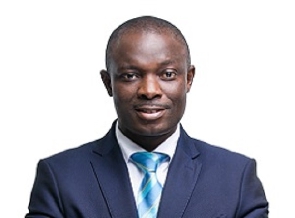adverts
Ghana’s 4th Republic has given eight years to ruling parties, not more. Beyond the loyalists of the various political parties, voters believe that when one political party governs for some time, they must leave for another political party to come. That voter belief is coming from something we hear all the time: “All politicians are the same, let one go and let another come.”
We (NPP) are looking to break the eight. It is an expectation coming at a time when hostile external factors have imposed considerable hardship on the average Ghanaian voter. But it is not just external factors that threaten our chances of electoral victory. The economic problems Ghana is facing today, at both the national level and in households, are also the cumulative effects of many decades, spanning different governments, of the bad politics and economic mismanagement that have characterised the governance of our country.
Since independence, we have survived by constantly overspending our means and borrowing to finance the overspending. And many of these expenditures are just bad prioritisation.
adverts
We always offer higher interest to lenders, borrow more, use a part to repay previous debts, and the rest to pay for the current year’s overspending. So, we have been running our country’s economy like a Ponzi scheme. The economy is struggling today because lenders are now refusing to lend to us. It is just like a Ponzi scheme going into crisis once people stop depositing their monies with them.
Many Ghanaians, myself included, worry that if we continue along the path we have been walking, our democracy will collapse, and with it, all our political parties. To save our country from this looming danger, the political class must acknowledge this reality and change behaviour. And we don’t have time!
Since independence, the political norm has been that a political party going into an election must sing praises of its past achievements and make high-sounding promises for the future. At the same time, a political party must paint its opponents in the worst possible light. We have mastered this art, and in the process, we have forgotten that politics should be about the future of our children and our motherland. We have reduced election campaigns to bitter struggles between competitors seeking power for the wrong reasons.
It is this primitive political culture that has led to the belief that all politicians are the same and produced the eight-year cycle we are seeking to break. To break the eight, therefore, we must first break that norm by doing the following:
- Acknowledge the past and present failures of the political class to provide the kind of quality leadership required to avert the mess in which we find our country today.
- Adopt deep and far-reaching reforms to address the decades of bad politics and economic mismanagement. We must convince voters that we shall be ruthless in our determination to fix this country, that we shall stay the course no matter the challenges, and that, there shall be no sacred cows!
- We must lead by example. As a precondition for any reforms, we must demonstrate the sacrifices we shall make as politicians to convince our people that we are in this together. We must address concerns about how much of our national resources we spend on ourselves as politicians, and take steps to overhaul the corrupt public procurement regime we inherited from previous governments and have continued to live with.
- Once we lead by example, we can say with integrity to our people that we are sinking in a common boat and call all Ghanaians to duty.
As a political party, if we sincerely believe and can demonstrate our faithfulness to these commitments, breaking the 8 will follow naturally.
Thank you.


